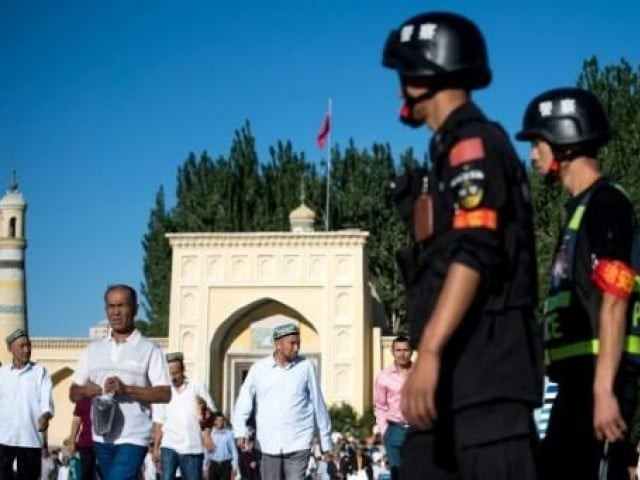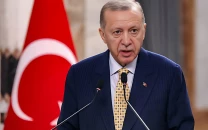China tightens restrictions on religious freedom
The updated rules include a ban on religious organisations accepting foreign donations

PHOTO: AFP
The updated rules, released by China's cabinet the State Council on Thursday, come as the country ratchets up already stringent controls on Muslim and Christian populations and include a ban on religious organisations accepting foreign donations.
China says it is facing a growing threat from domestic cults and extremists but critics have accused Beijing of a broader pattern of harassment, detention and abuse.
The latest measures focus on "maintaining legality, curbing illegality, blocking extremism, resisting infiltration and attacking crime", according to a copy of the regulations posted on the State Council's official website.
Rioting video sparks anti-Muslim rage in China
"Any organisation or individual may not use religion to carry out illegal activities such as endangering national security, undermining social order...and other activities that harm national interests," it said.
Among other changes, the regulations, which will be implemented February 2, extend previous rules to include online communications.
Religious groups must be registered with the state, while unregistered organisations -- which were already not allowed to set up places of worship -- are now also prohibited from establishing schools.
The fines for organising unapproved religious events have been hiked to up to 300,000 yuan ($46,400). Those providing the venue for such gatherings can now also be fined up to 200,000 yuan.
The changes are part of a broader effort to put religious practice under the direct supervision of the state.
China's officially atheist Communist authorities are wary of any organised movements outside their control, including religious ones.
On Wednesday, leaders from China's five officially recognised religions -- Buddhism, Daoism, Islam, Catholicism and Protestant Christianity -- agreed that "the direction of religions is to integrate them with Chinese culture", the official Xinhua news agency reported.
China blocking rights activists, harassing experts at UN: HRW
Beijing has stepped up its crackdown on civil society since President Xi Jinping took power in 2012, tightening restrictions on freedom of speech and jailing hundreds of activists and lawyers.
The constitution guarantees freedom of religious belief, a principle that Beijing says it upholds.
But an annual report from the US State Department released last month said that in 2016, China "physically abused, detained, arrested, tortured, sentenced to prison, or harassed adherents of both registered and unregistered religious groups".
The report noted arrests and harassment of church leaders in eastern Zhejiang province, who have opposed a government campaign to remove crosses from churches.
China denied the violations noted in the report, which it said "ignores facts".
In China's far western Xinjiang region, the mostly Muslim Uighur population has struggled with increasingly strict curbs on their faith, including bans on beards and public prayers.
And several Tibetan monks have died in self-immolation protests in recent months, according to rights groups.




1725099588-0/BeFunky-(41)1725099588-0-208x130.webp)














COMMENTS
Comments are moderated and generally will be posted if they are on-topic and not abusive.
For more information, please see our Comments FAQ